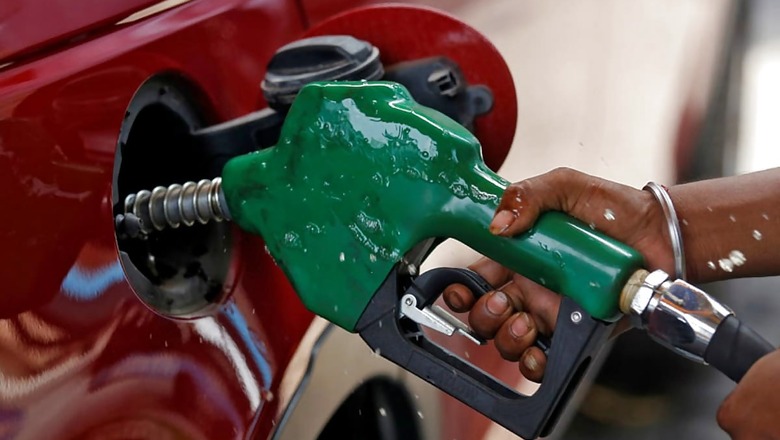
views
Petrol and diesel prices haven’t risen for over a week and reports suggest that assembly polls in five states may be the reason.
Fuel retail prices have remained unchanged for nine days, the longest gap between two revisions since January. According to a report in Times of India, the price freeze is ostensibly due to the Centre’s intervention.
In 2018, after fuel prices spiked to 55-month high ahead of the Karnataka assembly election, state-run fuel retailers had held the price line for 19 days from April 24 to May 13, beginning to raise prices two days after voting was over.
The oil companies had denied any government interference, saying prices were frozen in “public interest”.
Petrol prices have crossed of Rs 100 per litre in several cities and towns of Rajasthan and Madhya Pradesh, which have high VAT.
Diesel is selling well above Rs 80 a litre across the country, which raises costs for farmers and transporters.
The Centre had raised excise duty on petrol cumulatively by Rs 13 per litre and diesel by Rs 16 in two tranches on March 16 and May 5 when crude prices collapsed as demand evaporated after Covid-19 shut down economies
According to a separate report by Moneycontrol, there could be some respite soon for consumers who are reeling under the pressure of skyrocketing petrol and diesel prices.
The central government is likely to cut taxes on petrol and diesel ahead of the forthcoming assembly elections in five states if crude oil prices continue the northward march, sources informed Moneycontrol.
Assembly elections are scheduled in West Bengal, Assam, Kerala, Tamil Nadu and Puducherry. The polls will get underway on March 27 and the results will be announced on May 2. High oil prices are one of the key poll planks being used by opposition parties in these states to corner the Bharatiya Janata Party.
Even though the model code of conduct of assembly elections took effect on February 26, when the Election Commission (EC) announced the dates of the elections, the sources say that it won’t be a hurdle since the fuel tax reduction would be a national-level decision. Only state-centric announcements are prohibited, as per the election code of conduct.
Currently, central and state taxes make up for 60 percent of the retail selling price of petrol and over 54 percent of diesel.
Read all the Latest News, Breaking News and Coronavirus News here




















Comments
0 comment